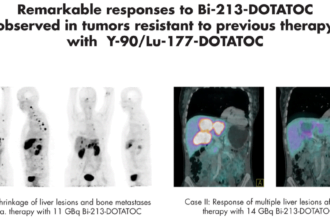Healthcare in the United States today is facing a crisis ? and it?s not what you think. Though we are certainly struggling with spending, nursing shortages, and the battle over health coverage, one of the biggest problems looming over modern medicine is alcoholism. According to a recent study published in JAMA Psychiatry, 1 in 8 Americans is an alcoholic. This is an increase of nearly 50% during the period between 2000 and 2010, and could pose serious treatment problems for hospitals and other facilities. Simply put, alcoholism increases the risk of many illnesses, including cancers, stroke, hypertension, live cirrhosis, and fetal alcohol syndrome, as well as injuries related to drunk driving and other accidental trauma. Many alcoholics also suffer from mental illness and require dual diagnosis services. How can your healthcare facility prepare for alcohol related treatment? There are several core capacities that need consideration, spanning fields ranging from maternal and fetal medicine and pediatrics, trauma, cardiology, and detox and recovery, among others.
Developing Detox Solutions
When thinking about alcoholism, the obvious place to start is with detox and rehabilitation options. Unfortunately, the US currently has a significant shortage of rehab beds, particularly for long-term treatment. If dedicated facilities can?t fill this gap, hospitals will have to pick up the slack, likely increasing the cost of illness (COI) linked to alcohol. One function hospitals are particularly well suited to serve within the recovery industry is within the realm of detox. Detoxing from alcohol can be very dangerous from a medical perspective and requires extensive oversight. Emergency healthcare professionals should be educated about new approaches to detox, including medically assisted detox. Combining hospital-based detox programs with traditional rehab facilities can help keep patients on track towards recovery ? it?s the lag in getting a bed in treatment that really exacerbates the crisis.
Preparing For Trauma
In recent years, most parts of the country have seen an overall decline in fatal car accidents. For example, in Fayette County, Kentucky, car accident fatalities fell from 32 in 2011 to just 18 in 2013, and New York saw a 60% decrease between 2001 and 2014. This is great news, but it may also be the calm before the storm. In general, an increased rate of alcohol dependency is likely to increase alcohol-related car accidents. To prepare for a potential increase in serious trauma cases, there are several things medical facilities can do. One of the most important things is adopting programs like the TraumaHawk app, hospitals can give emergency room doctors more time to prepare for incoming trauma cases, reducing the lag time between patient arrival and readiness for treatment. When doctors know the status of a patient coming in and have half an hour to prepare for their arrival from the crash site, they?re more likely to be able to move them directly into surgery, the burn ward, or other appropriate treatment. All ER professionals should be trained in programs like this.
Breaking Down Barriers
As mentioned above, alcoholics are at a higher risk of many different health problems, and these health issues tend to cross departmental boundaries. As a healthcare administrator, it?s your role to help facilitate staff collaboration across those barriers. Electronic medical records have certainly helped this process, but there?s more you can do, such as seeking out grants for specialized care facilities focused on alcohol abuse. Set to open in mid-2018, the 46-bed Ryan White HIV/AIDS Program ? Part B is an example of the sort of innovative treatment healthcare systems are developing and that can serve as a model for other programs across the country. The facility will run out the Fayette Regional Health System in Indiana and address the unique healthcare needs of HIV/AIDS patients struggling with alcohol abuse disorders. Like other dual-diagnosis oriented facilities, this facility will be specially equipped to care for more complex medical needs than a traditional alcoholism-only facility. Pediatric and maternal medicine specialists also need to be given more opportunities within the traditional hospital format to network with alcoholism specialists, neurologists, and other teams in order to appropriately address fetal alcohol syndrome spectrum conditions. This is especially important because within the big picture increase in alcoholism, alcohol abuse rose 84% among women and that will have long-term consequences for children born to these women. Children with FASD will need to be followed, potentially for the rest of their lives, in order to access appropriate care and support services. The increased rate of alcohol abuse means that there?s no room for barriers within healthcare, and administrators need to open lines of communication and enhance inter-department training to facilitate proper care for patients with alcoholism. From initial preventative care and screening to pediatrics and trauma, alcoholism knows no boundaries and right now it?s pressing down harder than ever on vulnerable populations.










